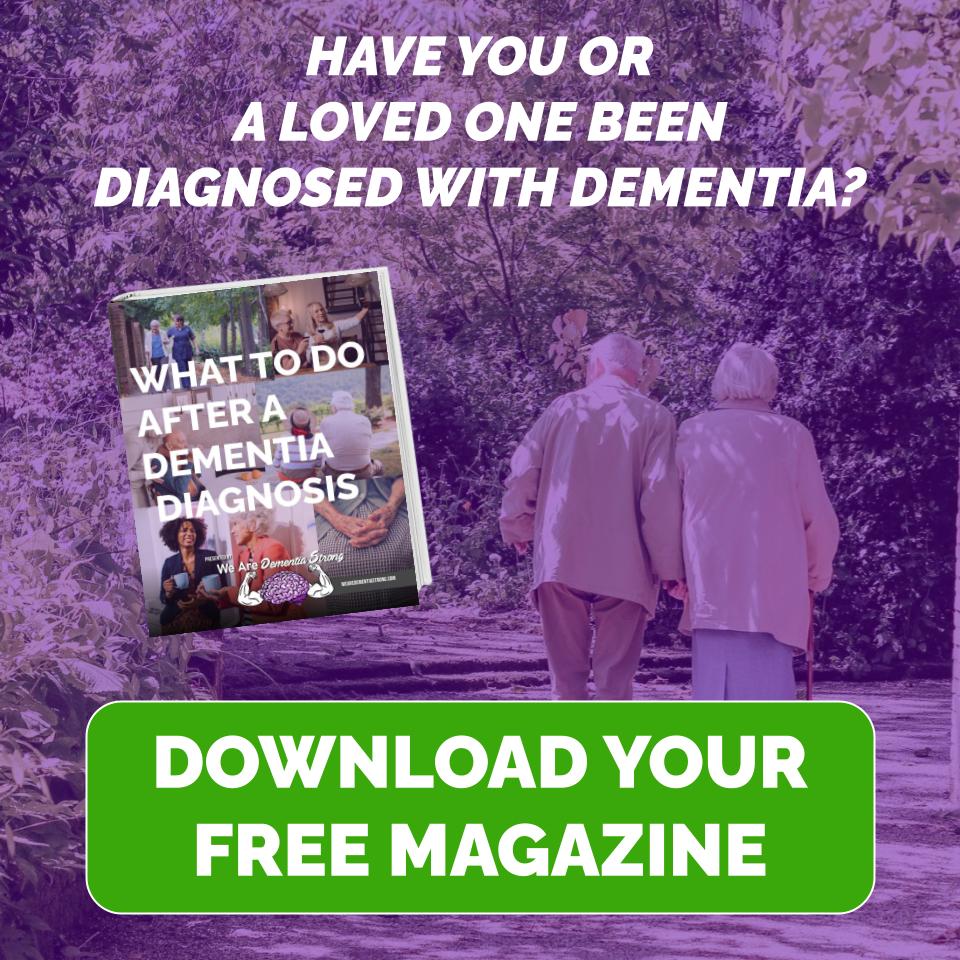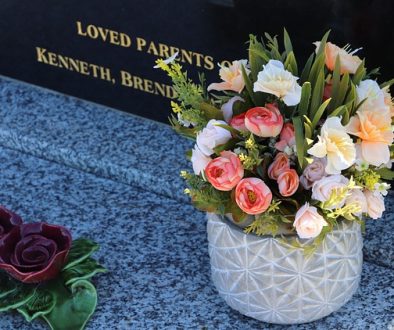What to Expect: The 7 Stages of Dementia
There are tons of books, blogs, podcasts and vlogs out there about the stages of dementia. But even some of the most reputable sources sometimes paint a fuzzy picture about what to expect when you or a loved one are diagnosed with Alzheimer’s or other forms of dementia.
Most content lacks perspective. And that’s no one’s fault.
As Brian LeBlanc (my life partner/care partner) and I always say: “If you know one person with dementia, you know one person with dementia.” Brian and I have loads of experience. He lives with Alzheimer’s disease and vascular dementia. Walking the dementia path together has challenged us in every sense. But from our perspectives as national advocates for dementia awareness and mine as a board-certified patient advocate, actually walking the walk illuminates many truths.
Here are the 7 Stages of Dementia and What You Might Expect
Dementia and its common calling cards are difficult to nail down. There are more than 400 recognized types of dementia (you often hear of Alzheimer’s, vascular dementia or Lewy body dementia as some of the most common). Each has its varying and progressive stages. Effects of dementia may be generally similar, but the seven stages of dementia may present to each individual differently.
First Stage (No Cognitive Symptoms)
The first stage of dementia is virtually undetectable, at least by outward appearances. Your loved one may be sharp as ever. The only real warning signs may come in brain scans and other tests — likely unrelated to any mental condition — revealing an abnormality. If so, the individual will be tabbed for further observation and testing.
Second Stage (Slight Cognitive Decline)
A misplaced name here. Losing the car keys there. “What did I come in here for?” The slight cognitive decline associated with dementia could easily be attributed to those dreaded “senior moments.”
You’re not wrong. Yes, we all know that aging often comes with natural declines in memory, reasoning and judgment. They may mirror early stages of dementia. Feeling like symptoms may be more severe than the typical forgetfulness that comes with aging? Visit your primary care physician.
Third Stage (Mild Cognitive Decline)
What constitutes slight versus mild? Just how far up the scale do regressions in memory and cognitive function have to go to throw up red flags for dementia?
Well, in this stage, the declines may be more pronounced to the individual and those closest to them. They likely still function at a high level — even professionally — but they may forget names, dates and events. Short-term memory losses are typically the first to go with most forms of dementia. You may be concerned for a diagnosis like early-onset dementia, which may very well occur with some early testing.
Fourth Stage (Moderate Cognitive Decline)
Regressions in memory and cognitive function will be impossible to ignore. Your loved one by now has likely forgotten names. Disorientation with time and place becomes common.
It may be unwise — or even dangerous — for an individual in this stage to drive a car. Individuals now have difficulty remembering things like directions, recipes, or chapters read in a book (you may notice your loved one rarely progresses through an entire book). They may no longer be able to focus on balancing a checkbook or making other important financial decisions.
Hallucinations and delusions begin most often in this mid-stage, although some may experience them sooner. It’s not uncommon for a person living with dementia to report sensing people, animals, shapes and other things that aren’t there. These are often misperceptions: misfiring neurons seeing a long-dead pet or hearing a rainstorm in passing traffic. Hallucinations and delusions can cause fear and anxiety (click here for some coping strategies).
By this point, a good life-care plan should mobilize a care-partner team of family, friends and professionals to tackle a variety of tasks to help your loved one on a permanent basis.
Fifth Stage (Moderately Severe Cognitive Decline)
Everyday tasks like eating, bathing and dressing require assistance. Functions that ran on autopilot for many decades need to be planned and regimented. It’s a matter of focus.
Memory loss in this stage can be severe. Individuals living with dementia may be “mentally present” in an entirely different decade. They may believe loved ones from their younger years — perhaps their parents, grandparents, aunts and uncles — are still alive. Mistaking current youngsters for their own children, brothers, sisters and cousins happens frequently.
But late-stage dementia is so much more than just memory loss.
Sixth Stage (Severe Cognitive Decline)
Memories in this stage are all but gone. Your loved one may remember some things from early in life and recognize certain people, but expressing such thoughts and feelings is likely impossible. But make no mistake, people living in late stages of dementia can still communicate. They may use gestures, eye movements, facial expressions, grunts and humming to convey meaning.
By this point, they probably require assistance with toileting and other tasks associated with 24/7 attendance. Increased hallucinations and delusions, combined with perpetual confusion, can cause extreme anxiety and agitation. Their life-care plan should include physical and emotional therapy (music and art therapy is an incredibly powerful dementia-treatment tool), as well as desired medications to quell the most severe symptoms.
Seventh Stage (Cognitive Failure)
Alzheimer’s and all other forms of dementia have one thing in common: they’re terminal. In this final stage, they’ve lost control of most human functions. They’re likely nonverbal and require ’round-the-clock assistance to even stand and walk.
Individuals with dementia often reach a point where they can no longer swallow without assistance. Meals may need to be pureed, and fluids may need to be nectar or honey thick to prevent choking. Many persons living with dementia enter hospice care for comfort at end of life.
Understanding the 7 Stages of Dementia
Some publications go so far as to give average time spans for each stage. We believe this is irresponsible. Even with individuals living with the same type of dementia, one may spend many years in the early-to-mid stages while another may progress more rapidly toward end stages. But it’s important to understand, in a general sense, what each stage may bring to plan accordingly.
Life-care planning is especially important for individuals and families living with dementia. #WeAreDementiaStrong. If you need help, Caregiver Support and Resources, LLC has over 25 years of experience with all aspects of life-care planning including dementia care. We’re happy to guide the process in a caring and compassionate way.






